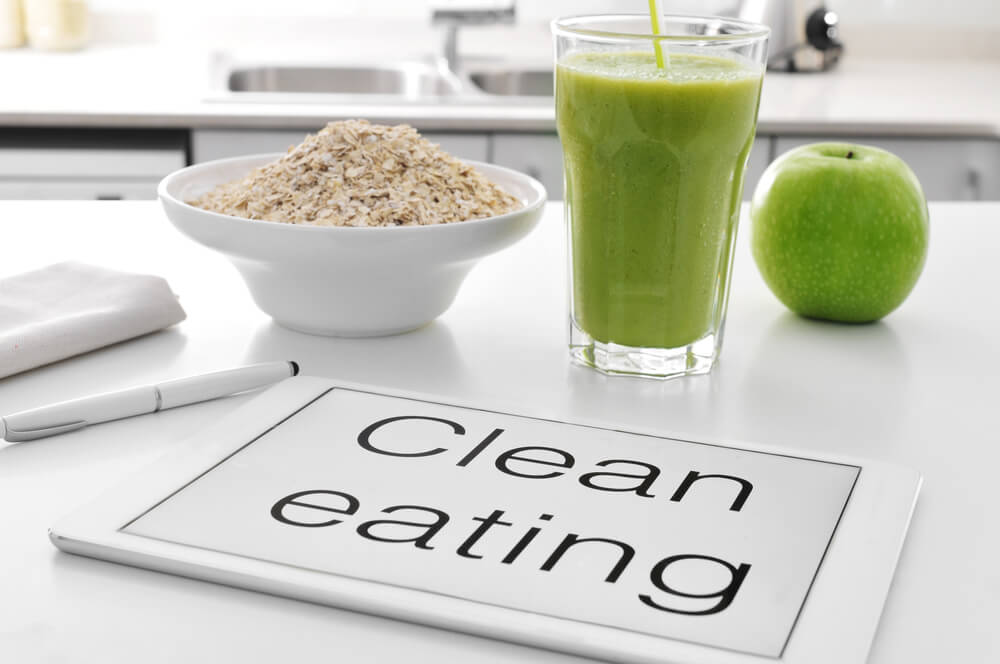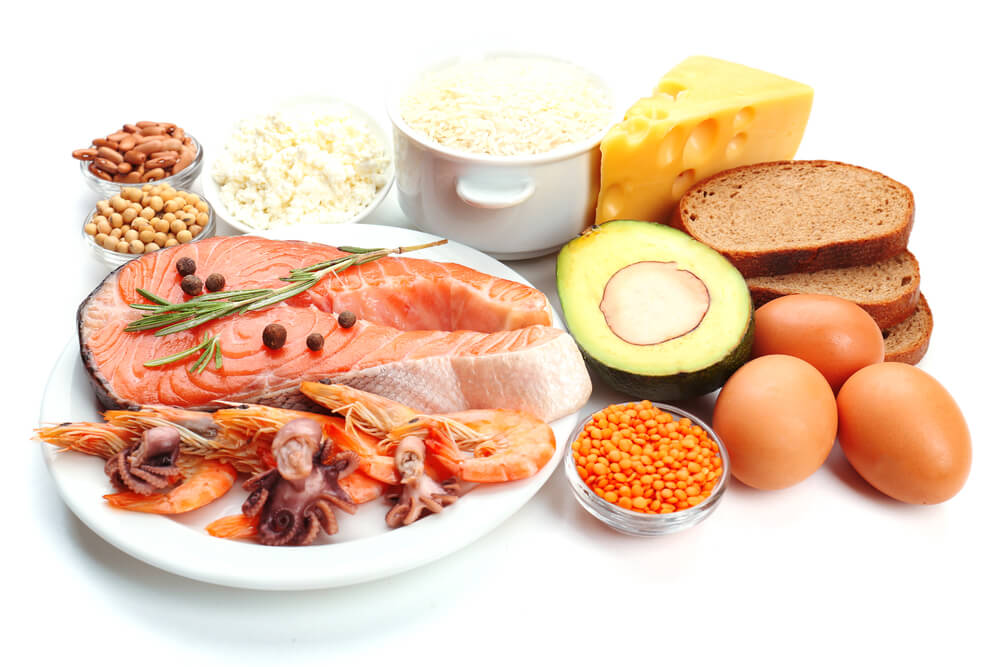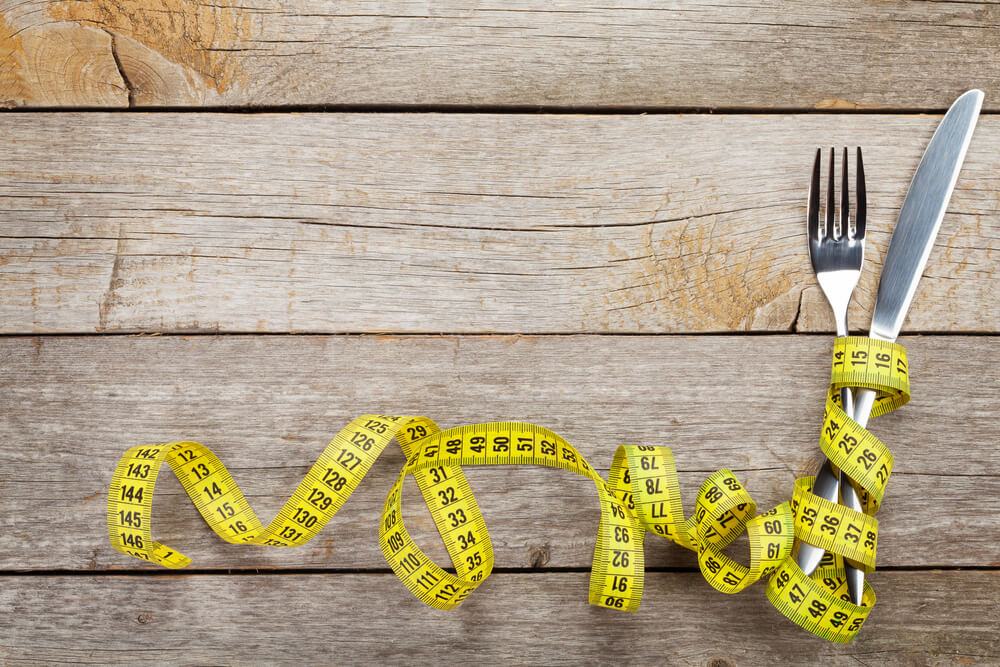
When it comes to diet and fitness, one of the most popular terms you hear is eating “clean.”
This term means more than just washing off your fruits and veggies.
Clean eating means you’re supplying your body with nutritious, healthy foods in order to keep vitamins and minerals in your body. And doing this is obviously healthy. After all, you’re giving your body exactly what it needs.
However, this isn’t a for sure way to building muscle or even to lose fat. In fact, you could eat only clean foods your entire life and still have that skinny fat look, with minimal muscles.
Probably not what you were expecting to hear. But the truth is, when body composition comes into play, how much and what you eat is a lot more important than you might think.
Fat loss comes down to this – you filling your body with less energy through food than it burns on a daily basis. Then, we measure how much energy was taken in via calories (aka kilocalories) and the amount of energy we were able to burn.
And when you give your body less calories than it burns in a day, you’re putting yourself in a calorie deficit. Your body needs energy, so if it isn’t getting it through the food you’re consuming, it’s going to look elsewhere.
So if you keep yourself in the deficit for some time, your total fat mass is going to decrease. And keeping this on a daily or weekly schedule is really the only way to do it.
But here’s where it gets sticky. Eating clean calories vs. “dirty” or non-clean calories still count. Clean calories aren’t any less than non-clean. You’re still going to lose or gain fat by eating these clean calories. Unfortunately, they don’t hold any magical ingredients that make them count any less than regular calories.
And when you’re dedicated to building muscle, a lot of people tend to be surprised that your total intake of calories actually affects how your body builds muscle. In fact, it affects just as much as the way calories can reduce your body fat percentage.
Is There a Healthy Balance When It Comes To Clean Eating?
The key here is energy balance. When you have a negative balance, your body is going to burn up a lot more calories than you’re giving it. But when you have a positive balance, your body is burning less energy than what you’re feeding it.
And, like you probably already know, when you keep a negative energy balance over time, your total fat mass is going to decrease. But it doesn’t come for free. Keeping this negative energy balance hinders your body’s ability to synthesize muscle proteins. So yeah, you’re on this diet in order to lose fat/weight, but your body can’t produce muscles in an efficient way. And that’s generally why people believe you can’t build muscle while you’re trying to lose fat at the same time.

What this means for you: If you really want to maximize muscle growth, you have to make sure you aren’t in a caloric deficit.
In fact, it’s pretty much the opposite. If you want the best results, you need to make sure your body is in a moderate caloric surplus, aka having the positive energy balance.
As for a number of calories to keep you in this spot, we can’t exactly give it to you. It differs for each person, depending on the person’s metabolism. You might have a fast metabolism while your friend has a slower one. But you can figure out where your calorie intake should be with some simple trial and error.
However, if you need a place to start, try with this equation: For every pound of body weight you have, aim for 1 gram of protein, 2 grams of carbs, and about .3 grams of fat. With these numbers, you can make up your own meal plan for the foods you want to use your calories on. Follow your new found routine every single day for a few weeks and see how you feel. Take measurements before and after so you know what you’re doing is working.
Now we’re going to take it a step further and talk about meal frequency. These last few years, all we’ve heard about is the importance of eating smaller meals throughout the day. Having 5 to 7 smaller meals, instead of 3 big meals, is said to give your metabolism a boost while keeping your appetite and hunger pains under control. And this did seem to make sense – at first.
It is true that your metabolism speeds up when you’re eating. Why? Because it has to work harder in order to digest the food you’re eating and get all those delicious nutrients. So the idea behind this is, if you eat every couple of hours, your metabolic rate is going to stay elevated all day, so it’s going to keep burning those calories. Plus, it’s going to help keep your hunger at bay because you’re eating little bits throughout the day.
As logical as all this sounds, when it comes down to it, it doesn’t make a ton of sense. First, let’s take a look at how ingesting food affects your overall metabolism. Your body uses energy to digest and process fats, carbs and proteins – and this is called the thermic effect of food. And, depending on how much food you eat, that’s how much of a boost your metabolism is going to get. And the smaller the meal, the smaller the amount of energy used.
Are There Studies On Clean Eating?
On the flipside, the larger the meal, the more amount of energy your body is going to put forth. So yeah, this is all great, but why does all of it matter for weight loss? Eating more often can help you lose weight – or does it do the opposite?
The French National Institute of Health and Medical Research decided to find out. Scientists looked at the results of studies that compared the thermic effect of food in a huge spread of eating patterns. And by huge, we mean meals ranging from 1 to 17 a day.
When they looked at the amount of energy used in a 24-hour period, they didn’t see a huge difference between grazing and devouring. The smaller meals more often showed short, smaller boosts in metabolism, and the larger meals showed longer metabolic boosts. At the end of the 24-hour period, they basically balanced out.
There was a similar study done by the University of Ontario, who looked at 2 different groups. Group A had a solid 3 meals each day. Group B had 3 meals, as well as 3 snacks each day. Both groups were in a caloric restriction in order to lose weight. After 8 weeks, a total of 16 volunteers finished the study. The results? Researchers saw there wasn’t any kind of difference for muscle loss, weight loss or even fat loss.
Basically, what we’re getting at is this – increasing/decreasing how often you eat meals will help with overall dietary compliance. But here’s what it’s not going to do – increase your total daily expenditure, so fat loss isn’t going to be affected.
Branching off of this is appetite control. A lot of health and fitness “experts” say that eating more often is going to result in less feedings. While this isn’t completely untrue, it isn’t a straightforward guarantee.
University of Missouri conducted a study with 27 overweight men. They discovered that after `12 weeks of dieting in order to lose weight, upping their protein intake helped keep their appetites under control. However, eating more meals often (3 meals a day vs. 6 smaller meals) didn’t have any effect on the volunteer’s appetite.
The University of Kansas decided to check it out, too. They aimed their focus on meal frequency and protein intake, and how these two affected not just appetite, but satiety and hormonal responses. They also found that higher amounts of protein led to longer, bigger feelings of feeling full. However, they also found that 6 meals a day ended up making volunteers feel less full than 3 meals.

That doesn’t mean 3 meals a day should be your new rule. Other studies show that some people feel fuller for longer with 5 to 6 meals.
The point we’re trying to make is this – appetite has many different faces that can be altered by many different facts, and everyone is going to respond differently to eating frequency.
What’s an easy way to tell if you should stick with 3 meals or go to 6-7? Follow your hunger patterns and work with them, instead of against them. The best thing you can do is start with eating several smaller meals throughout the day. Each serving should have protein in it, since that’s obvious the key factor to remember. A lot of people prefer this method because it allows them to eat different types of food during the day. Sometimes, people feel like they’re “tricking” their brain into eating more. As always, the best kind of diet/lifestyle is the one you’re going to stick to.
And since we’re talking about protein, let’s take a deep look at it. Protein is a molecule that’s made up of amino acids. These substances build protein molecules and break them down. All muscles are made up of muscle proteins, so in order to build more muscle; your body needs a certain number of amino acids. Your body is capable of synthesizing a few of these amino acids. However, it turns to food to get these critical (aka essential) amino acids.
What Does My Diet Look Like For Clean Eating?
So if your diet doesn’t have enough protein from eating clean, you can actually become deficient. Therefore, you’re going to struggle to not only build muscle but repair muscle tissue after it becomes impaired. This isn’t just for exercise – this is your body’s regular process. Cells die and are replaced – but it’s a lot harder to do this when you don’t have the necessary protein. But regular exercise is going to make it harder because you need these amino acids.
The University of Western Ontario found that 1.6 – 1.8 grams of protein for every kilogram of body weight is what you need in order to maximize protein synthesis. But higher amounts can have a wide range of benefits, depending on a few other factors.
So getting enough protein in your diet is critical. And if you’re focusing on eating clean, you might have a hard time doing this. If you diet doesn’t have enough protein, it’s not going to be able to get these essential amino acids. And muscle tissue isn’t going to build or be able to get repaired. These are important things to keep in mind while you’re doing a clean diet.
Lastly, we will address the carb-crazed hysteria that has risen in the last few years. A lot of clean diets don’t promote eating a ton of carbs. But carbs are also important when it comes to building muscles and keeping your energy level high. You don’t want to drop your carb intake to anything less than .8 grams of every pound in your body.
Conclusion
So clean eating is important, but you shouldn’t make it your entire world. And we agree that a major chunk (if not all) of your calories in a day should come from healthy food bursting full of nutrition.
However, there’s a lot more than just “clean” that needs to go in a proper meal. This is the foundation for success with both weight loss and muscle growth. You need to have a balance of everything and you can incorporate a few different methods.
Make the switch over to grass-fed beef and chicken for an added boost of clean. Try and cut out any processed foods and stick with healthy carbs. You don’t have to follow the exact guidelines of eating clean in order to truly eat clean. Make a dietary plan that works for you and stick with it. Small changes can make a huge difference.
-Terry Asher
Terry
Latest posts by Terry (see all)
- How Important Are Net Carbs For Building Huge Muscle? - Apr 28, 2017
- The Matt Damon Workout Explained - Apr 27, 2017
- Watercress – Benefits And The Best Way To Consume It - Apr 26, 2017











[…] the right types of food, and does not require a big caloric deficit. And here is one way where “clean eating” becomes […]